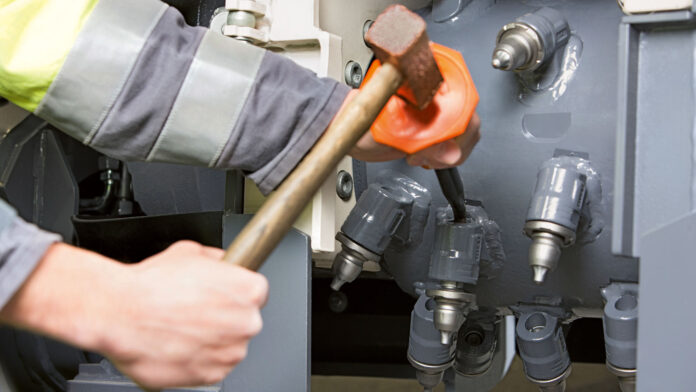In the oil painting oil and gas industriousness, milling tooth bits play a vital part in drilling and excavation operations. They are used to cut through various conformations, including jewels, cement, and substance coverings, allowing access to oil painting oil and gas reserves. These bits are essential for wellbore cleanout, sidetracking, and plug milling tasks, icing the smooth flux of oil painting oil and gas. The mining and excavation sedulity heavily relies on milling tooth bits for tasks analogous as tunneling, road title slice, and trenching.
These bits are designed to cut through hard jewels, coal, and other paraphernalia encountered during mining operations. They enable effective material junking, thereby adding productivity and reducing time- eschewal. You are welcome to visit us for detailed instructions, guides and trusted products.
Milling Tooth Bits in Construction and Road conservation
Construction and road conservation crews use milling tooth bits to remove asphalt, concrete, and other paraphernalia during face milling and resurfacing systems. These bits are vital for creating smooth road shells, repairing damaged roads, and preparing shells for new construction. They help to ensure safety and stretch the continuance of roadways.
Factors to Consider When Choosing Milling Tooth Bits
When concluding milling tooth bits, it’s vital to consider the type of material you will be working with. Different paraphernalia bear different bit designs and cutting shells. For illustration, if you are working with concrete, carbide leaned bits or diamond coated bits are more suitable than standard brand bits. Choosing the right bit size is essential for achieving the asked results. Larger bits are ideal for heavy- duty tasks, while lower bits offer lower perfection. Also, consider the design of the bit, analogous as the number and arrangement of teeth, as it can affect cutting effectiveness and chip dumping.
Effective milling tooth bits can significantly impact design timelines and costs. Look for bits that offer high cutting favas and effective material junking. Factors analogous as tooth figure, cutting edge sharpness, and overall bit quality can impact cutting speed and effectiveness. Flash back, concluding the right milling tooth bits can greatly enhance the performance and productivity of your systems, so choose wisely and let those bits do their delicious magic!
Conservation and Care for Milling Tooth Bits
Keeping your milling tooth bits in good condition is essential for optimal performance and life. Also are some pivotal conservation and care tips to ensure your bits stay in top shape. Drawing and examination after each use, it’s vital to clean your milling tooth bits fully. Remove any debris, analogous as dirt, jewels, or other paraphernalia that may have accumulated during operation. Check each tooth precisely for any signs of damage or wear, analogous as dullness or chipping. However, address them incontinently to help further damage or compromised performance, if you notice any issues.
Stropping and revamping
Regular stropping and redoing are necessary to maintain the slice effectiveness of your milling tooth bits. You can do this by using specialized stropping tools or seeking professional stropping services. Dull or damaged teeth not only reduce effectiveness but also increase the trouble of premature wear and tear and gash and implicit failure. Stay on top of this task to keep your bits in optimal slice condition.
Future Developments and Advancements in Milling Tooth Bits
Manufacturers are constantly exploring new paraphernalia and coatings that offer superior slice performance and durability. Anticipate seeing advancements in paraphernalia like carbide and diamond, as well as innovative coatings that reduce disunion and meliorate chip evacuation. These advancements will affect in longer- lasting and further effective milling tooth bits.
In the pursuit of bettered slice performance and versatility, new bit designs are being developed. These designs may incorporate geometrical advancements to optimize chip flux and slice forces, allowing for better effectiveness and reduced tool wear and tear and gash. Keep an eye out for these innovative bit designs that can take your milling operations to the coming position.
Summary of the Milling Tooth Bits Guide
In conclusion, milling tooth bits are necessary tools for a wide range of industriousness, offering perfection and effectiveness in material dumping. By understanding the different types and variations of milling tooth bits, considering essential factors when choosing them, and administering proper conservation and safety practices, stoners can maximize their performance and life. As advancements continue to drive the development of cutting paraphernalia and innovative bit designs, the future of milling tooth bits holds promising possibilities. By staying informed and embracing these advancements, industriousness can continue to benefit from the responsibility and effectiveness of milling tooth bits in their operations.










